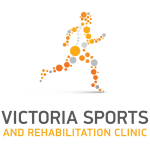What is a frozen shoulder?
It is also known as adhesive capsulitis. Basically the capsule that surrounds the shoulder becomes inflamed and stiffens. This will normally only occur in one shoulder, though in approximately 1 in 5 cases it can occur in both shoulders.
Why does it happen?
The cause is still poorly understood. It can occur after immobilisation of the shoulder post injury or sometimes the cause will be unidentifiable.
Who can it happen to?
Common risk factors are:
- Age – 40 +
- Gender – females are 70% more likely to suffer than males
- Recent surgery or fracture to the shoulder girdle or arm, which requires an extended period of immobilisation
- Diabetes
- Cardiovascular disease
How is it diagnosed?
A frozen shoulder can be diagnosed by taking a thorough case history and performing a physical exam of the shoulder. The gold standard is a dynamic ultrasound of the shoulder. This is where a Sonographer will use real-time ultrasound on the shoulder while taking the joint through a number of different movements.
How do you treat it?
Treatment can vary depending on the severity:
- Manual Therapy (Osteopathy) – can assist with reducing pain by releasing surrounding musculature. Also by precribing a specific series of exercise to maintain mobility
- Medication – your general practitioner can prescribe you pain relief in the form of analgesics and/or non-steroidal anti-inflammatories
- Hot or Cold Pack – can be used to reduce inflammation and maintain mobility. Your Osteopath can explain this treatment
- Exercise – gentle and frequent exercise can prevent and sometimes reduce stiffness in the shoulder
- Hydrodilation – this is performed by a Radiologist. A combination of local anaesthetic, cortisone and saline is injected into the shoulder. It acts to distend the shoulder joint, stretching the capsule
- Shoulder Arthroscopic – this is used in a small amount of cases to remove scar tissues or adhesions
- Manipulation under Anaesthetic – performed under a general anaesthetic, a shoulder surgeon will take your shoulder through a specific range of movements to increase the range
How long does it take to get better?
Frozen shoulders can take anywhere between 6 months to 2 years. The shoulder will transition through 3 stages:
- Painful Stage – the shoulder becomes stiff and painful, movement reduces
- Frozen Stage – the shoulder continues to stiffen, pain may reduce or stay the same
- Thawing Stage – movement begins to return to the shoulder, pain will reduce
Victoria Sports and Rehabilitation Clinic is located on the Mornington Peninsula, 1287 Nepean Hwy, Mt Eliza. You can make an appointment online at www.vsrc.com.au or phone the clinic on (03) 9787 7702.
